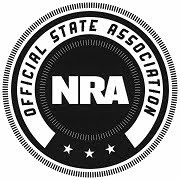As autumn approaches, Ray Respress gets busy clearing paths, building tree stands and gathering gear for the upcoming deer hunting season. His routine is on hold this fall until his Flat Iron Hunt Club learns if it will have anyplace place to go.The article focused on hunt clubs but lack of land access for private hunters is also a problem. The state's public wildlife management areas are not always a good option. With localities ever growing hunger for tax revenue, more and more undeveloped land is being sold to developers. There was a time when it was relatively easy for a hunter to gain access to prime private hunting land simply by asking. Today, this is less and less the case.
"We don't have a contract on it to date," Respress said about the last James City tract of land that the hunt club can lease. Usually the yearly contract is firmed up by July. "We don't want to go in there and spend three or four days cutting trails and removing brush if we aren't going to have the land," he said.
The situation is a byproduct of growth, as landowners look to more tightly control their lands, often with an eye toward development. For various reasons, hunting has declined by 4% nationally in the past five years, according to the U.S. Fish & Wildlife Service. The tracts are drying up.
"We've lost them all," lamented Andy Priestley, owner of Headhunter's Headquarters in Toano, an official station for hunters to gauge their catch. He said at least 20 hunt clubs have disappeared in the past five years. He can count only five left in the county. His own club, Grove Kennel, disbanded seven years ago after losing its hunting tract in Stonehouse. Years ago most hunting agreements were verbal, between old friends. But as the original landowners died, the land often passed to their children, some of whom were less willing to honor the agreements.
In an article earlier this year, Outdoor Life addressed the nation's declining hunting numbers and pointed out the larger problem is demographics:
Hunting participation peaked in 1982, when nearly 17 million hunters purchased 28.3 million licenses. Hunter numbers have steadily declined since. We lost 2.2 million hunters between 2011 and 2016 alone, according to the National Survey of Hunting, Fishing, and Wildlife-Associated Recreation, a report issued by the U.S. Fish and Wildlife Service. In 2016, just 11.5 million people hunted. That’s less than 4 percent of the national population.Outdoor Life looked at the demographics of the hunting population. They noted that baby boomers make up the largest portion of the nation's hunters, and that they have already begun to age out of the sport. Outdoor Life went on to point out that in the next 15 years, most will stop buying licenses entirely, and when they do, the hunter ranks could plunge by 30 percent. The major downside to this is that with a reduction in the number of hunting licenses purchased also brings with it a plunge in critical funding for wildlife management as well as hunting advocacy because those fees go directly to wildlife conservation and management.
The Outdoor Life article goes on to discuss how to reverse the trend and discuss some models that work. For those of us who enjoy hunting and want to see it continued for future generations, the trends are not promising, but, the Outdoor Life article says we turn it around, if we change the way we recruit new hunters.








No comments:
Post a Comment